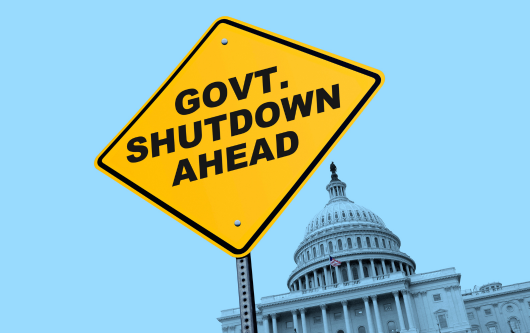2025 Government Shutdown: Will It Affect Your Divorce?

As of October 1, 2025, the U.S. federal government officially shut down after Congress failed to pass a budget or continuing resolution to keep agencies funded. This marks the first major shutdown since 2018–2019, and it may have wide-ranging effects on families and individuals — including those in the middle of divorce.
So what could this mean for your divorce, child support, or alimony? Here are four key areas to be aware of:
1. IRS Services & Tax Refund Delays
The IRS remains open to process tax payments and accept tax filings, but helplines and other services deemed “nonessential” are typically suspended during a shutdown. If you’re in the process of gathering old tax records for your divorce or need IRS verification for income and assets, be prepared that you could run into delays should you need to contact support services.
Refund processing may also be limited during a shutdown, meaning if you’re counting on a tax refund as part of a divorce settlement or property distribution, you might have to wait longer than expected.
2. Furloughs & Support Payments
An estimated 750,000 federal workers are being furloughed or working without pay during this shutdown. If your former spouse (or you) are a federal employee, furloughs and delayed paychecks can affect the ability to keep up with child support or alimony payments. If you are struggling to make or receive payments, speak with your attorney about options such as filing a temporary motion to modify support obligations until regular income resumes.
3. Mortgages, Loans & Business Impacts
During a government shutdown, the Small Business Administration (SBA) typically puts new loan applications on hold, which may impact recently divorced individuals relying on federal loans to stabilize a business. HUD loan approvals and housing assistance programs could be delayed as well. This may affect your ability to buy or refinance a home following a divorce. If your divorce settlement involved transferring property or selling a marital home, these delays could complicate your timeline.
4. Public Assistance Programs
At the federal level, Temporary Assistance for Needy Families (TANF) funding is usually cut off by a shutdown, but many states have funding available for carryover into the new fiscal year. The WIC (Women-Infant-Children) food assistance program is also covered by state funds in the short term. If you are in need of emergency welfare assistance or help with paying for food, contact your local New Jersey social services office, which can provide assistance with locating appropriate help.
The good news: Social Security, SSI, veterans’ benefits, Medicaid, and unemployment insurance will continue despite the shutdown.
What About the Courts?
Federal courts remain open, at least in the short term, though operations could be curtailed if the shutdown drags on.
New Jersey state courts, including the family courts where divorces and custody matters are decided, remain fully operational and are not affected by the federal shutdown.
While the shutdown will not stop your divorce from moving forward in state court, it may affect the financial backdrop of your case — from delayed IRS records and refunds, to disruptions in support payments, to slowed loan approvals. If you are concerned about how the shutdown might impact your divorce or support obligations, speak with your attorney right away to explore your options.
Have questions about your divorce? We can help. To schedule a consultation with one of our highly experienced family law attorneys, call us today at 888-888-0919.


